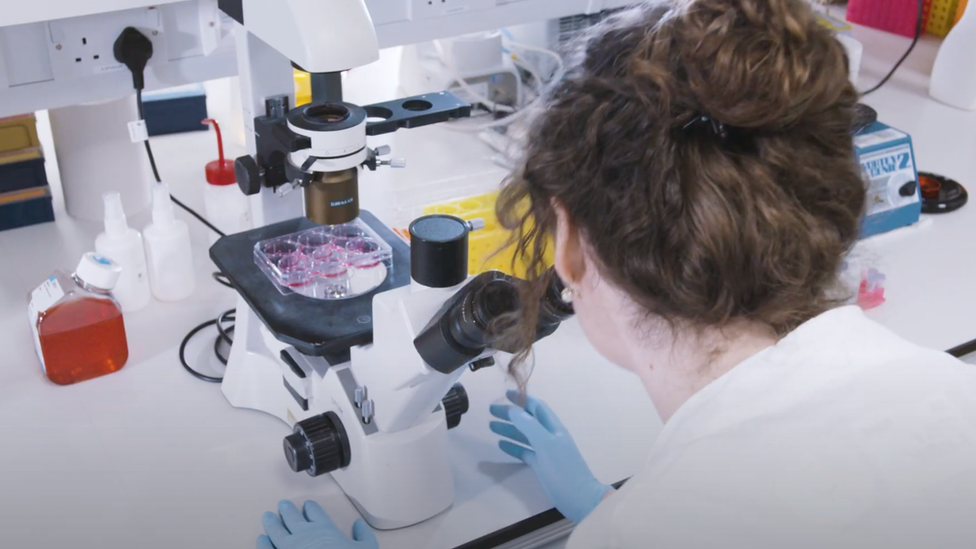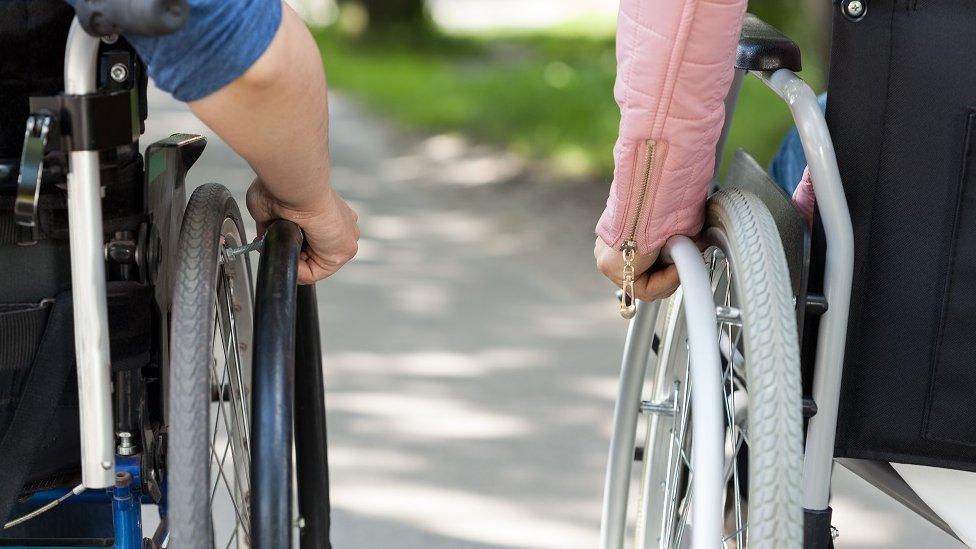Birmingham mum felt stuck in MS lockdown 'prison'
- Published

"It has not impacted only my life, it has impacted my children's lives," Mounira Khelil said
A mother who was diagnosed with multiple sclerosis (MS) just before the Covid-19 pandemic began said the first lockdown was like "a big prison".
Mounira Khelil, 49, from Northfield, Birmingham, said her young children had to help look after her and she was unable to get treatment until October.
She said she "felt numb" when she was first diagnosed and found it hard to find information during the pandemic.
Ms Khelil said she now wanted to share her experience to help others.
Her diagnosis in February 2020 came as a surprise, she said: "I was going to work in the morning and I was getting the kids ready to go to school and I lost my legs, I could not walk."
At first she thought it may have been a heart attack or stress, but the MS diagnosis was given by doctors at Birmingham's Queen Elizabeth Hospital.
She said she had no prior knowledge of the condition or what it might mean.
"I could not walk, I could not feed myself, I could not go to the toilet, I was in absolute immense shock," she said.

Ms Khelil said she is now able to control her symptoms using medication
As a single parent to her children, aged 10 and 11, she said there was a role reversal during the first coronavirus lockdown in March 2020.
"Instead of me taking care of them, at that time they were looking after me," she said.
She said she found it frustrating being unable to support her children with home schooling.
"During that lockdown the weather was extremely nice and I could not walk with the children, so they could not go out on their own.
"You're supposed to go out on family-only walks, I could not do that with my children," she said.

What is multiple sclerosis?

Multiple sclerosis (MS) is a condition that can affect the brain and spinal cord, causing a wide range of potential symptoms, including problems with vision, arm or leg movement, sensation or balance.
It is a lifelong condition that can sometimes cause serious disability, although it can occasionally be mild.
The main symptoms include fatigue, difficulty walking, vision problems, problems controlling the bladder, numbness or tingling in different parts of the body, muscle stiffness and spasms, problems with balance and co-ordination and problems with thinking, learning and planning.
Source: NHS, external

Although she was able to access online support groups while at home, the easing of lockdown restrictions enabled her to get the help of a physiotherapist in the autumn, who she said was an "angel in disguise".
Medication has also helped her manage her condition and she has since joined the MS Trust to speak about her experience, in the hope her story might help others with the condition.

Follow BBC West Midlands on Facebook, external, Twitter, external and Instagram, external. Send your story ideas to: newsonline.westmidlands@bbc.co.uk, external
- Published31 March 2021

- Published8 February 2021

- Published7 January 2021
